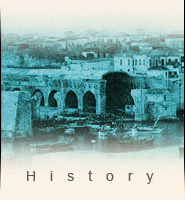
«Alla Greca»
Both Venetian officials and foreign travellers visiting Crete ascertained that most Venetians living on the island spoke the Greek language and lived "alla Greca", adopting Greek customs and manners, as Provveditor General Giovanni Mocenigo noted in his report of 1589. On the other hand, Italian influences on everyday life were particularly manifest in clothing, diet and entertainment. Cretan houses often had a portego (reception room) and a loggetta (verandah); young people sported the capello genovese (Genoese hat) and feraroli alla francese. It was not uncommon for Orthodox children to be given names of Italian origin, such as Alevizos, Domenicos, Giacoumis, Regina and Annezina.
To this day, Venetian influence remains evident in several Cretan surnames, such as Kornaros (from the Venetian surname Corner), Dandolos - Dandoulakis - Doundoulakis (from Dandolo) and Vailakis or Bailakis (from the Venetian office of bailo, Greek vailos, official emissary of the republic).

Illuminated manuscript of "Erotocritos", 1835 (copied by Ionistas, illuminated by Petrakis, Romanian Academy Library, Bucharest, Bucharest)
1204
1206
1211
1211
1217
1228
1265
1278
1282
1299
1341
1363
1446
1453
1462
1471
1508
1523
1527
1538
1562
1567
1590
1592
1629
1637
1644
1645
1645









